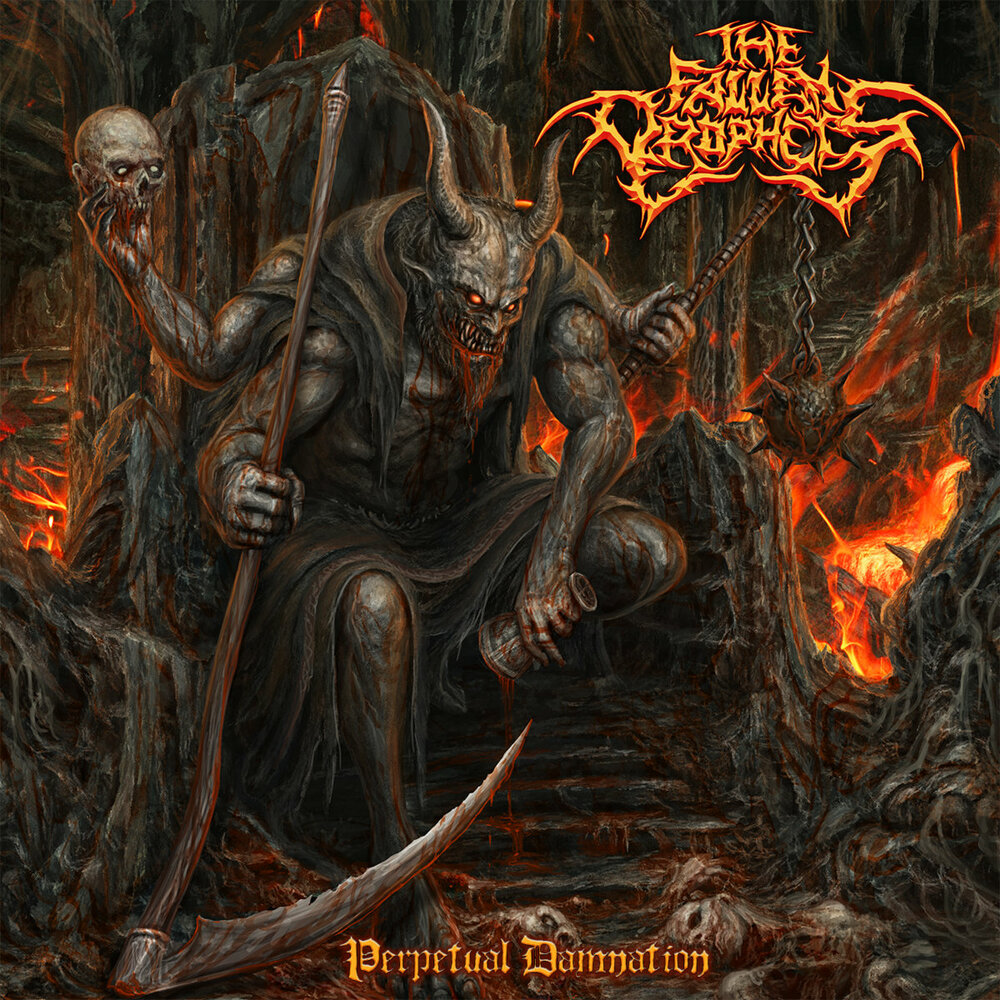 |
Country: Sweden
Style: Melodic Death Metal
Rating: 7/10
Release Date: 10 Jan 2025
Sites: Bandcamp | Facebook | Instagram | Metal Archives | Official Website | Twitter | Wikipedia | YouTube
This is only the Halo Effect's second album, but they have a solid lineage, having been founded by guitarist Niclas Engelin after leaving In Flames. He'd been a touring guitarist for them as early as 1997 and he'd filled in for founder member Jesper Strömblad on multiple occasions before joining in an official capacity in 2010, initially as a temporary stopgap but soon confirmed as the full time guitarist. Ironically, Strömblad is the second guitarist in the Halo Effect. Peter Iwers, who spent a decade in In Flames, plays bass. Drummer Daniel Svensson had seven years in In Flames. The only member who doesn't have a history with In Flames is vocalist Mikael Stanne, who's the vocalist in Dark Tranquillity instead. That's quite the melodic death metal background for a "new band".
This is very smooth melodic death and it washed over me a few times before I started to focus on what they were actually doing. Conspire to Deceive is a textbook melodeath song but it's so clean that we can be half a dozen tracks on before that truly registers. Detonate has a particular catchy guitar hook that I could imagine in a melodic rock song and that's something that happens often, especially on What We Become and March of the Unheard. Change the tone and the voice and the former could easily be a melodic rock song. Alternatively, a melodic rock band could cover it in the style for which they're known and the structure wouldn't remotely need to change.
There are a few notable things to call out, once we listen enough times to catch everything.
For one, there are some lovely intros. Some, like on Conspire to Deceive and Forever Astray, come through the work of a guest musician, Örjan Örnkloo of Misery Loves Co. on synths. I don't believe he's an official member of the Halo Effect, but he flavours their sound substantially. Others, as we might expect, are delivered on guitar. On Our Channel to the Darkness, that's an acoustic guitar and it's both delicate and tasteful. What We Become and The Burning Point do the same thing but with more typical electric guitar. A Death That Becomes Us combines approaches, utilising electric guitar and synths.
For another, much of this unfolds at midpace, but the moments when the band speed up are very tasty indeed. That primarily means parts of Our Channel to the Darkness, whose transition from the slower pace to the fast is particularly effective. I'd call this out as a highlight for a number of reasons, starting with the delicate intro and continuing with the faster pace, but those synths do fascinating work in the second half and the riff/hook is very effective.
Those hooks are a third note, because hooks tend to be vocal and these are played on guitar. They ought to count as riffs but they do exactly what vocal hooks do so I'm thinking of them that way. Of course, Mikael Stanne doesn't go there for the most part, because he's singing in a harsh voice, a well intonated growl that gives him plenty of opportunity for nuance but not quite so much for an array of melodic rock hooks.
However, there is a clean voice here, increasingly during the second half of the album, and I have to assume that it's mostly him, varying his delivery. I may be mistaken, but I don't think it appears until Forever Astray eight tracks in, returning on Between Directions. The only guest voice that I see listed belongs to Julia Norman, who's very apparent on a predominantly instrumental piece, Coda, which closes out the album with vocalisations rather than words, and not very apparent at all on March of the Unheard. Back to Stanne, though, if it is indeed him duetting with himself, he has a rich clean voice that could easily sing lead in another band.
The final note is that another addition on the second half is a string section, albeit a small section as they come, just a cello played by Johannes Bergion and a violin played by Erika Almström. They are also on March of the Unheard, which somehow escapes me every time I listen to it, but are not ignorable on Between Directions. They provide the intro, for a start, but the also sit behind the vocals during the verses, with the guitar absent. The violin dances with Stanne's clean voice often. Finally, both cello and violin reappear on Coda, which is Stanne-free.
Overall, this is a very easy album to like. It starts well with highlights like Conspire to Deceive and Our Channel to the Darkness and remains highly consistent throughout, even as it diversifies what it does in the second half. The question is always going to come down to how well it sticks. That I'm not sure about yet. It feels like it ought to stick well but I somehow tune out on some of the songs every single time. They're not bad songs. They just lose me as if they're coated in some impeccable non-stick surface and I just slide away. With both those aspects in mind, I'll stick (ha!) with a solid 7/10.



















